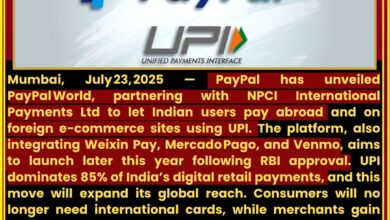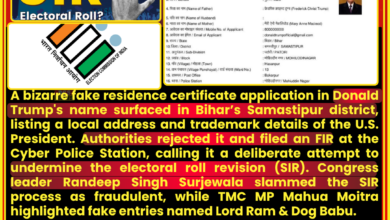
A recent examination has revealed serious discrepancies in the information provided on the Central Government’s web portal regarding ration cards in Tamil Nadu. The portal has been found to inaccurately list outdated figures, incorrect beneficiary details, and misleading statistics, which has raised alarm among citizens and state officials alike. This misrepresentation of data could potentially affect food distribution systems, which are vital for ensuring food security to millions of people in the state.
The Central Government’s web portal, which is intended to provide real-time updates on the Public Distribution System (PDS), has displayed incorrect data on the number of active ration cards in Tamil Nadu, leading to a skewed understanding of how the system is functioning. The portal incorrectly lists both the number of beneficiaries and the categories of ration cardholders, resulting in confusion regarding the actual extent of coverage and access to subsidized food grains in the state.
Impact on Beneficiaries and the Food Distribution System
The Tamil Nadu Government has been quick to respond to the discrepancies. According to officials, the state has a well-established and effective PDS system, which supports the distribution of essential food items such as rice, wheat, sugar, and kerosene to economically disadvantaged households. The misrepresentation of ration card data on the Central Government’s portal can lead to misunderstandings about the real number of beneficiaries, ultimately affecting the distribution efficiency.
In Tamil Nadu, the ration card system is critical to ensuring food security for the state’s marginalized populations. Any discrepancy in the data could result in inaccurate assessments of the state’s need for food supplies, thus potentially leading to under-allocation or misallocation of food grains. This can severely impact those who rely heavily on subsidized food to meet their nutritional needs.
The Tamil Nadu Government has raised concerns that the Central Government’s portal is not providing an accurate reflection of state-level food distribution. This could result in both misinformation being shared with the public and administrative challenges in properly meeting the food security needs of eligible households.
Tamil Nadu Government’s Response
The Tamil Nadu Government has demanded a review of the web portal’s data accuracy and has officially called for corrections to be made to the ration card information displayed on the Central portal. State officials have also called on the Central Government to take necessary steps to improve the portal’s data accuracy, as this misrepresentation could create significant administrative hurdles.
Moreover, the Tamil Nadu Government has pointed out that the Portal’s discrepancies have caused confusion at the ground level, where ration cardholders are often unable to access the essential goods they are entitled to. These issues, if left unaddressed, could further impact the state’s ongoing efforts to ensure the equitable distribution of food to its underprivileged citizens.
Technology and Data Discrepancies in Ration Card Systems
The issue surrounding the misleading data on the Central Government’s web portal also brings attention to broader concerns about the integration of technology in government welfare systems. Real-time data management and digitization are critical to ensuring the efficiency and accuracy of programs like the PDS. However, as this incident shows, the challenges associated with maintaining accurate data on a national level can sometimes lead to mistakes that negatively affect local governance and public welfare.
Data discrepancies on government portals can also lead to issues with accountability, where citizens may find it difficult to track their entitlements or voice concerns regarding missing benefits. This highlights the urgent need for better integration between state-level records and centralized databases, as well as improved mechanisms to verify and correct errors in real time.
Looking Ahead: Steps to Improve Data Accuracy
To resolve these issues, the Tamil Nadu Government has called for more robust collaboration with the Central Government to create a more accurate and transparent system for tracking ration cardholders. This may involve updating the Central portal with the most current state-level data and ensuring that any incorrect information is swiftly addressed. Additionally, there should be efforts to improve local-level data verification to reduce reliance on centralized digital records that may be prone to errors.
Improving data quality in the ration card system would not only ensure that the correct number of beneficiaries are served but would also pave the way for more efficient implementation of welfare schemes. Accuracy in the data would also enhance public trust in the government’s ability to effectively manage critical welfare programs such as the PDS.
Conclusion
The misleading information on the Central Government’s web portal regarding ration cards in Tamil Nadu highlights the importance of accurate data management in government welfare schemes. While the Tamil Nadu Government is taking proactive steps to address these discrepancies, it is essential for the Central Government to ensure that the PDS system is fully digitized and capable of providing accurate, real-time updates that benefit citizens and maintain food security.










